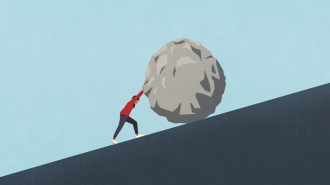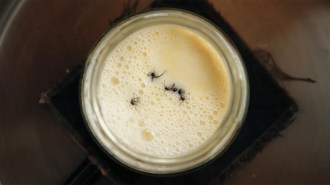Old, cold facts
That draining wetlands leads to a greater likelihood of frosts and freezes in southern Florida (“Frosty Florida: Spread of agriculture may promote freezes,” SN: 11/8/03, p. 292: Frosty Florida: Spread of agriculture may promote freezes) was noted nearly a century ago. In The Commodore’s Story (1930, R. Munroe and V. Gilpin, Washburn), Ralph Munroe commented that “the ‘frost line’ moved spasmodically down the state as drainage decreased the water area and apparently influenced the temperature.”
James W. Hayman
Scottsmoor, Fla.
Where were you?
“Forgetting to Remember: Emotion robs memory while reviving it” (SN: 11/8/03, p. 293: Forgetting to Remember: Emotion robs memory while reviving it) says that emotions can both decrease and enhance memories of specific events. It’s been over 40 years since President John F. Kennedy was murdered, and I can remember being in my U.S. History class and hearing the news on the loudspeakers, as if it happened an hour ago. I have absolutely no memory of the days just prior to Kennedy’s death.
Sharon Luedtke
Lanham, Md.
Lively debate
In “Martian Invasion” (SN: 11/8/03, p. 298: Martian Invasion), the white cliffs of Dover are offered as a “notable example” of the precipitated carbonate deposits some have expected to find had Mars been wet and warm in the past. The Dover chalks are an unfortunate choice for comparison because they’re composed primarily of the calcitic remains of microscopic marine phytoplankton. As most carbonate sediments on Earth are the result of direct or indirect biogenic activity, extensive examples of inorganically precipitated carbonate sediments will be hard to find.
K.M. Towe
Tennille, Ga.
****************
If you have a comment on any article that you would like considered for publication in Science News, send it to editors@sciencenews.org. Please include your name and location.







